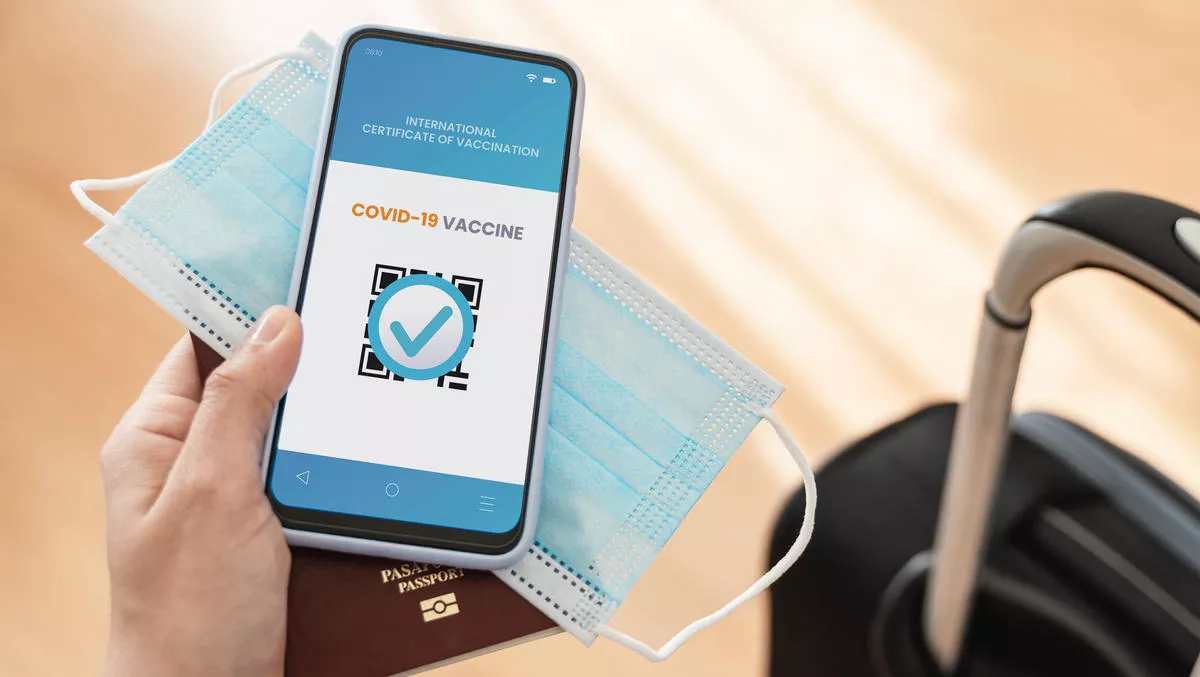
Will a vaccine passport help international flights take off?
Identity validation and authentication have evolved to become a critical business enabler. This is set to increase as organisations worldwide look at ways of kickstarting their core business and finding new revenue as the world wakes up from the pandemic lockdown, and of course, this needs to be achieved in a safe, lower-risk manner.
An example of this can be seen in the recent announcement that the Australian airline, Qantas, is looking at the practicality of a 'vaccine passport' to get people flying safely once again as borders open up. The initiative has evolved into what is now termed the Travel Pass, proposed by the International Air Transport Association (IATA).
As the primary industry body for airline travel, IATA would engage with authorised parties who would confirm a travel certificate to be issued to those individuals who have been administered a genuine COVID-19 vaccine.
Similarly, the United States and several European countries are developing digital vaccine certifications that would facilitate opening up travel, dining out, events and more to those who can provide these credentials. While no vaccine will provide perfect protection — such immunity credentials could mean that both international and domestic carriers could start flying with greater confidence — and the world could get moving again.
Reviving trust in travellers through technology
Today, traditional passports help to identify and define how individuals are allowed to move through borders. Likewise, returning citizens or travellers from countries with yellow fever risk must produce a valid vaccination certificate.
A digital 'immunity passport' of this nature needs to be fundamentally secure and tamper-proof. Trust is the foundation that a digital passport is built upon – firstly, trust that the credentials within it are 100% genuine, and secondly, trust in that the passport is absolutely beyond suspicion of fraudulent activity.
To achieve this, a digital signature needs to be created and is generally stored within a convenient mobile device such as a phone or a smart card. The digital signature is designed to interact with systems and relevant authorities – working to securely identify the individual as well as any relevant official documentation.
A digital credential of this nature is inherently more secure and durable than a paper record, which can be reproduced easily, or a digital copy of a document stored in an open file or wallet. It is bound to the holder by various means, providing both physical and digital security.
For example, the digital link may be between the individual's virtual credential, and the physical form factor such as their passport or mobile phone. This, in turn, is bound to that person by means of secure identification, often in the form of a biometric scan – either facial recognition or fingerprint.
Looking at the official credential – in this case, a vaccine certificate to identify the holder as someone vaccinated against COVID-19 – it too has multiple layers of trust built into it. The credential's authenticity can be proven, with built-in security features required to match an authentic sample.
In essence, it bears a digital signature that chains it to the authorising body, ensuring that it is both genuine and issued by the correct authority. The documentation's integrity is also provable, with built-in features that certify the data needed has not been tampered with, either physically or digitally.
In terms of security, the digital credential for each individual is unique and trusted – allowing the individual to authenticate and sign the appropriate records when they have received the required vaccine. Strong access controls and authorisation rules would protect privacy to ensure that approved personnel have the rights to only the data they need and that personal records stored and in transit remain encrypted.
Securing the future of travel
The Australian government has shared that a likely scenario for later in 2021 would involve anyone arriving in Australia requiring proof of vaccination upon entry, or alternately, enter a period of quarantine.
The real opportunity is in spurring transformation toward 'digital citizen' initiatives – national ID programs that incorporate digital credentials in ways that streamline travel and access to government services while protecting citizen privacy.
An accepted travel pass would issue an easily identifiable tick of approval for passengers who have the authoritative digital credentials, as well as the encrypted records of their vaccination record, to present during their clearance at border control points. It may also be helpful for other travel use cases, such as staying in hotels, catching trains and other forms of public transport, and accessing tourist destinations such as amusement parks and zoos.
Ultimately, the vaccine passport or other trusted credentials can be a robust and viable solution for enabling trust between travellers, carriers such as airlines and cruise lines, tourism destinations and the governments controlling international borders. This trust is critical for allowing borders to open in a safe, convenient and controlled manner.

